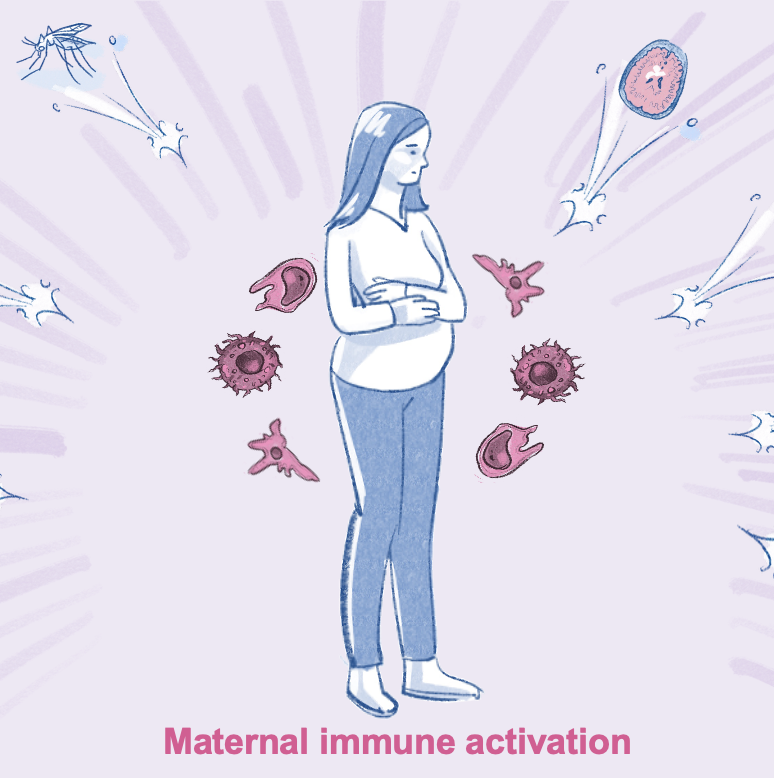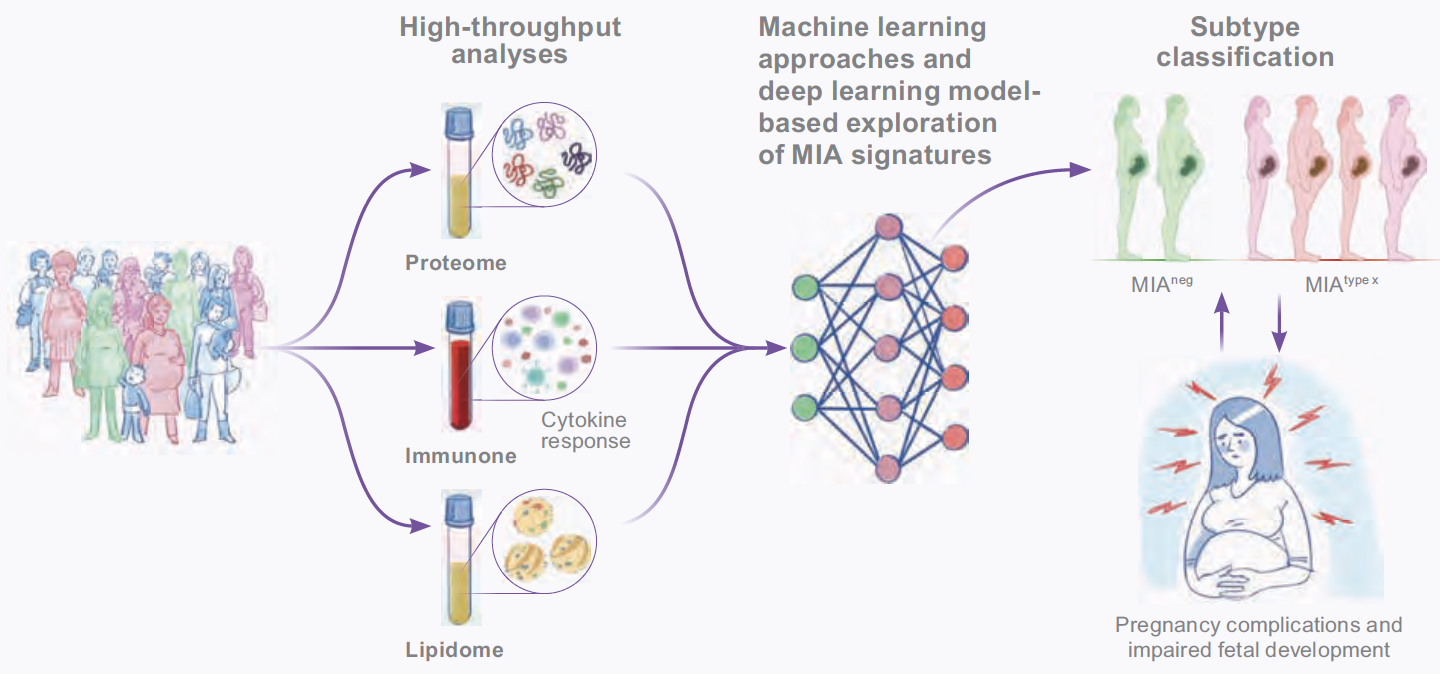CRC MIA - AI for Understanding Maternal Immune Activation


In the context of a large-scale, interdisciplinary project (DFG CRC on “Maternal Immune Activation”), we are inviting outstanding, highly motivated researchers to join us for developing and applying novel artificial intelligence methods for understanding maternal immune activation during pregnancy and improving maternal and neonatal health. For this, we are looking forward to you applications for a
Postdoc / senior PhD on Artificial Intelligence for Understanding Maternal Immune Activation
- How to apply: Application portal
- Deadline: September 14th
More Information
The position is part of the DFG-funded CRC 1713 “Maternal Immune Activation” with the UKE Hamburg and will encompass tight collaboration with leading experts in the field of pregnancy and neo-natal research. This provides access to unique, large-scale, multi-modal, and longitudinal data including detailed information about mothers, their pregnancy, and the long-term development of their children. You will be integrated into the Hessian.AI group “Artificial Intelligence – Deep Decision Support Systems” which works on knowledge-centric AI and biomedical machine learning with a focus on but not limited to multi-omics integration, single cell analysis, and sequential data analysis. The group provides a strong network to local AI expertise (e.g., Hessian.AI, TU Darmstadt), large scale compute infrastructure, as well as a broad international network including Stanford, UC San Diego, Lund (Sweden) or McGill (Canada). The position is to be filled as soon as possible after 01.10.2025 for a period of 2 years (+2 years extension possible). It is fulltime (40h / week) with salary and benefits equivalent to a public service position in the state Hesse, Germany (TV-H E 13/14, 100 %).
Your Tasks
- Project work and management within the CRC on “Maternal Immune Activation” involving the development and application of novel artificial intelligence methods
- Working on methods for predictive multi-omics integration, longitudinal pattern mining, and explainable artificial intelligence for complex system analysis and understanding
- Tightly collaborating with world-leading biologists and domain experts for iteratively refining models of maternal immune activation
- Driving high‑impact open research: contribute to open‑source toolkits, co-author peer‑reviewed conference and journal publications, present results internationally
- Scientific services in research and teaching, including the supervision and mentoring junior students
- Development and implementation of project ideas including preparation and contribution to competitive research proposals - laying the groundwork for an internationally visible independent scientific profile
Your Profile
- Strong interest in applied AI in bio-medical settings
- PhD (or close to completion) in computer science, math or comparable, or an applied/life science (engineering, biology, medicine, …) with a focus on data analysis and/or machine learning
- Several years of experience in data analysis / machine learning / AI as well as, optimally, multi-omics integration, lipidomic analysis, and/or single cell analysis (e.g., flow cytometry, FACS, CyTOF)
- Structured, self-managed and team-oriented working style with strong communication skills
- Ability to work in interdisciplinary teams as well as lead junior researchers, and strong commitment to your own scientific development
- Proficiency in written and spoken English as well as excellent presentation skills of research results
We actively support the professional development of junior researchers by the offers of Marburg Research Academy (MARA), the International Office and the Higher Education Didactics Office.
We Offer
- A stimulating, interdisciplinary research environment in a growing, ambitious, team-oriented research group on knowledge-centric AI and bio-medical, environmental, and behavioral research
- Integration in AI and bio-medical expert networks including the newly established AI Space at the University of Marburg, the Hessian Center for Artificial Intelligence (Hessian.AI, TU Darmstadt), and the UKE Hamburg
- An extensive international network including Stanford, UC San Diego, McGill (Canada) or Lund (Sweden)
- Access to state-of-the-art technology, large-scale compute clusters (e.g., via Hessian.AI), as well as excellent research infrastructure
- Strong and active support for personal and academic development, including leadership in research projects and group management, teaching experience and supervision of academic theses
- A university with diverse applied focal points including tumor research, synthetic microbiology, neurosciences, and earth sciences as well as a wide variety of amenities